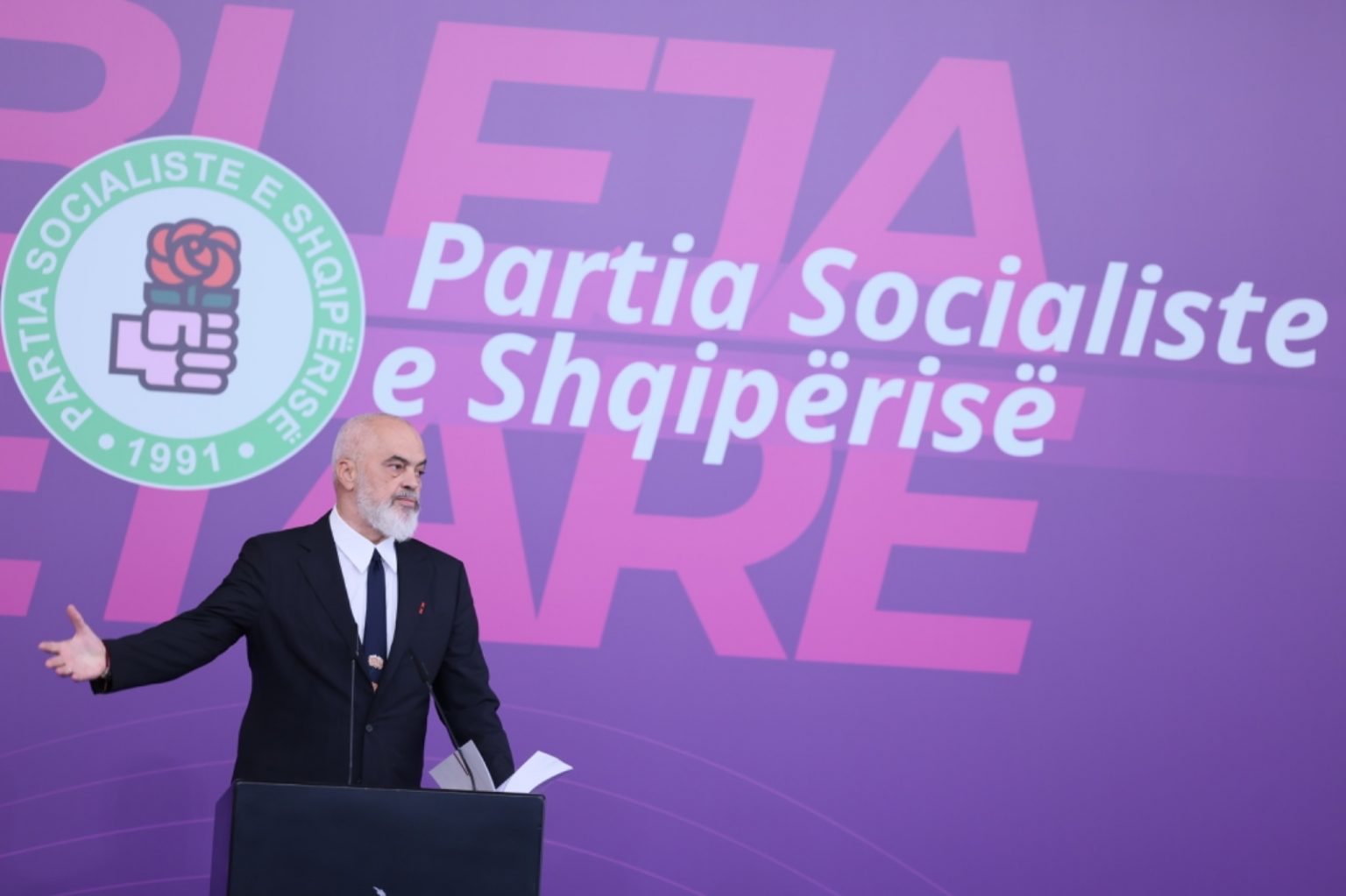Edi Rama unveils new cabinet

Prime Minister Edi Rama presented the 16 members of his fourth term cabinet during the Socialist Party’s National Assembly, four months after the May 11 elections. The new government will feature an equal number of men and women.
Why is this important: The new cabinet introduces a first-in-the-world innovation: a virtual “Minister Diella,” an AI-driven ministerial role tasked with overseeing public procurement. Rama said this move is designed to boost transparency and efficiency in government contracting.
Context: Nine ministers from the previous government will remain, but only Deputy Prime Minister Belinda Balluku and four others will keep their current portfolios. The key appointments are:
- Deputy Prime Minister, Minister of Energy and Infrastructure: Belinda Balluku
- Minister of Finance: Petrit Malaj
- Minister of Defense: Pirro Vengu
- Minister of State for Public Administration: Adea Pirdeni
- Minister of State and Chief Negotiator: Majlinda Dhuka
Four other ministers will head newly created or restructured ministries, including Albania’s first female Minister of Interior, Albana Koçiu, whom Rama tasked with restoring credibility to a ministry he said had been mismanaged for years.
- Minister of Interior: Albana Koçiu
- Minister of Economy and Innovation: Delina Ibrahimaj
- Minister of Tourism, Culture and Sport: Blendi Gonxhe
- Minister of Education: Mirela Kumbaro
Former Speaker of Parliament Elisa Spiropali returns as Minister for Europe and Foreign Affairs, replacing Igli Hasani. Six completely new ministers – including two former mayors – will join the government:
- Minister of Health: Evis Salaj
- Minister of Justice: Besfort Lamallari
- Minister of Agriculture and Rural Development: Andis Salla
- Minister of Environment: Sofjan Jaupaj
- Minister of State for Local Government: Ervin Demo
- Minister of State for Parliament: Toni Gogu
Beyond the cabinet: Rama also announced sweeping parliamentary reforms. Niko Peleshi will serve as Speaker, while Taulant Balla will lead the Socialist parliamentary group. Rama proposed reducing the number of MPs from 140 to 101 and renaming parliamentary committees, with four of eleven committees proposed to be chaired by the opposition.
The prime minister also committed to drafting a new law on Parliament and constructing a new building for the legislature. He signaled the launch of two major reforms – electoral and territorial – and invited opposition cooperation, though he said it was “not an absolute necessity.”
Next steps: The new cabinet will be sworn in once parliament convenes its first session on September 12. The focus will shift to implementing constitutional changes, parliamentary restructuring, and the start of the dual reforms on elections and territorial organization.


